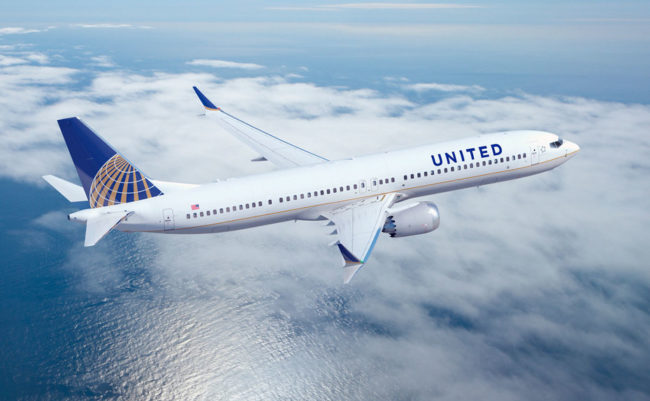
United’s Strategy: All Things to All People
One of the core concepts I teach in my Marketing Strategy course at Northwestern University’s Kellogg School of Management is that no one company can be all things to all people.
The problem is that people are different. Delighting one person might mean providing a top quality product at a very high price, but pleasing someone else might require a stripped down offering at a low price. Companies that try to do both things face major challenges. If you are going to provide low prices you have to prune away expenses, even at the cost of employee morale and quality. It is very difficult for the same organization to deliver a premium product.
Examples of strategic focus abound. Apple, BMW, Patagonia and Whole Foods all do quite well with a premium focus; Walmart and Aldi do well with a low price strategy.
United Airlines is taking a different approach. Instead of focusing on either price or quality, the giant carrier is attempting to win with all air travelers.
United recently made two big announcements. First, the company rolled out its new Polaris business class product. This premium offering will feature spacious seats, lovely wines and spiffy lounges. It sounds terrific. Here is a recent spot.
Second, United announced this month that it was introducing a new low-price product offering called Basic Economy. This will be a very different air travel experience. Basic Economy passengers will only be able to carry-on one bag, will not have a reserved seat and will board last. Families will probably be separated. This will be a fairly dismal experience, but it will be cheap. You can read more about it here.
The logic is this: United needs to be competitive on the high-end, but it also wants to push back discount carriers like Spirit and Frontier on the low-end. In particular, United wants to win the search-engine battle, so that its flights show up with the cheaper players’.
Delta rolled out a similar though less stripped-down product several years ago. American Airlines will apparently soon follow the trend.
Competitively, there are compelling advantages to all of this. If United can attract the price-sensitive flier, it can pull travelers from Spirit and Frontier. With high-end Polaris in the equation, United can even lose money on these discount fliers and still generate profit from their pricier, luxury offering. Ideally, the big three airlines can drive Spirit and Frontier out of the market.
So will the strategy work? Will United be an exception to the focus rule?
I suspect not.
The big problem is that United is going to end up with a lot of unhappy customers. Those people boarding late and facing luggage restrictions are going to be rather disappointed, and they will complain. Business travelers who find themselves boarding last and waiting for a checked bag will be particularly unhappy. United’s quality perceptions will not improve.
Now on domestic flights, this might not matter. If people dislike all the airlines, then a bit of unhappiness with one isn’t a problem.
It will be a bigger concern on international flights. Emirates and other global carriers are growing and promise a superior product. Here is a recent ad from Emirates. United will have a hard time competing without better quality perceptions.
Another issue is that the new fare class makes things very complicated, and research consistently shows that people dislike complexity. Look here to see all of Delta’s different offerings.
Finally, perceptions of the United brand will blur. What will it mean to fly on United? Will there be a certain level of service? Perhaps, but perhaps not. Spirit is cheap; people flying on Spirit know what to expect. United? Who knows. This is a branding problem.
Instead of rolling out a terrible product and diluting its brand, United should focus on providing a quality, differentiated service that can command a price premium to the discount players.
You mention that “perceptions of the United brand will blur.” While I generally agree that trying to serve everyone under one corporate brand umbrella is generally a terrible idea, it’s not clear to me that United had much of a premium image left to try to salvage! United’s customer service has been in a race to the bottom against American/US Air for years. United had already dragged Continental’s stronger brand image down to negative NPS territory, and that was before United’s CEO turmoil further paralyzed the airline. Amongst the US carriers, I’d point to JetBlue’s introduction of Blue basic coach fares alongside Mint premium class as a textbook example of how to successfully extend market reach without shattering an enduring brand promise and strong consumer value proposition.
Spirit is cheap and has the monopoly to Myrtle Beach where I fly occasionally. To avoid Spirit I recently flew American on that route even though it meant two planes instead of one. I preferred it. Will do anything to avoid Spirit. Sad to hear that United and perhaps American plan to compete in that miserable league of minimal to no service or creature comforts.
Would United’s best strategy if they want to proceed with trying to capture an upper or lower tier of the market be to create new brands flying separate planes that do not feature the United name (similar to how Toyota created Lexus)? Obviously they would need to consider the economics of such a decision (especially around whether sending multiple planes on the same destinations). But from a branding perspective is it the most sound in your opinion?
Danielle—In theory the two brand approach would make sense. That is what Lufthansa is trying with its discount airline Eurowings. There are two challenges. First, filling the planes might be difficult if you split passengers between two brands. Second, running a discount airline requires a different approach to HR, customer service and facilities management. If I were United I would think about leaving the true discount flyers to the discount airlines.